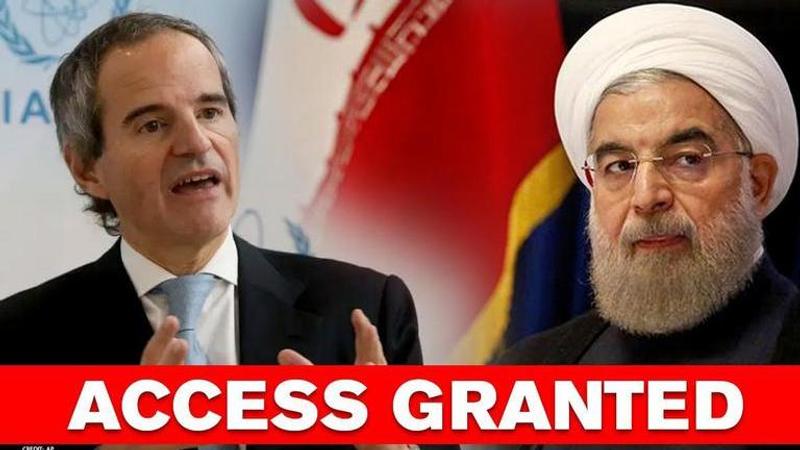Published 04:21 IST, August 27th 2020
Iran agrees to allow IAEA to inspect two suspected nuclear sites 'to resolve the issues'
Iran has agreed to allow inspectors from the International Atomic Energy Agency (IAEA) to visit the country's two suspected nuclear sites for verification.

Iran has agreed to allow inspectors from the International Atomic Energy Agency (IAEA) to visit the country's two suspected nuclear sites for verification activities.
The Islamic Republic and the United Nations' nuclear watchdog reached an agreement on Wednesday, August 26 that would allow IAEA to visit the two suspected nuclear cities in Tehran and Isfahan. The agreement comes amid IAEA Director-General Rafael Grossi's high-level visit to Iran.
Following talks between Grossi and Iranian President Hassan Rouhani, the two sides issued a joint press statement saying, "After intensive bilateral consultations, Iran and the IAEA reached an agreement on the resolution of the safeguards implementation issues specified by the IAEA, in good faith. In this regard, Iran is voluntarily providing the IAEA with access to the two locations specified by the IAEA and facilitating the IAEA verification activities to resolve these issues."
Tehran had long-denied permission to IAEA for inspection in the country, arguing that it was due to baseless allegations from foe Israel. But the Islamic Republic finally agreed after continuous pressure from the UN body over the past few months.
The IAEA in June passes a resolution calling on Iran to allow its inspectors to physically verify the two suspected nuclear sites. According to reports, Iran has agreed to allow the inspection of a condition that IAEA would pursue no further questions regarding the issue.
As per the joint statement, dates for the IAEA access and the verification activities have been agreed upon. "Activities will proceed in accordance with the CSA and the AP, and the IAEA’s standard verification practice as implemented for all States with CSAs and APs on an equal basis and without discrimination," the statement read.
The development comes ahead of the Joint Commission meeting in September on the landmark 2015 nuclear deal signed between Iran and the major powers of the world, including the United States. However, the Trump administration backed off from the deal in 2018 calling it 'horrible one-sided agreement'.
The 2015 deal
Under the deal, it was agreed that Iran would scale down its uranium enrichment programme and in exchange international sanctions against the country would be lifted. However, after Trump's withdrawal, the United States reimposed sanctions on the country preventing it from selling oil and gas to the world, which is a major source of income for the Middle East nation.
Updated 04:21 IST, August 27th 2020




